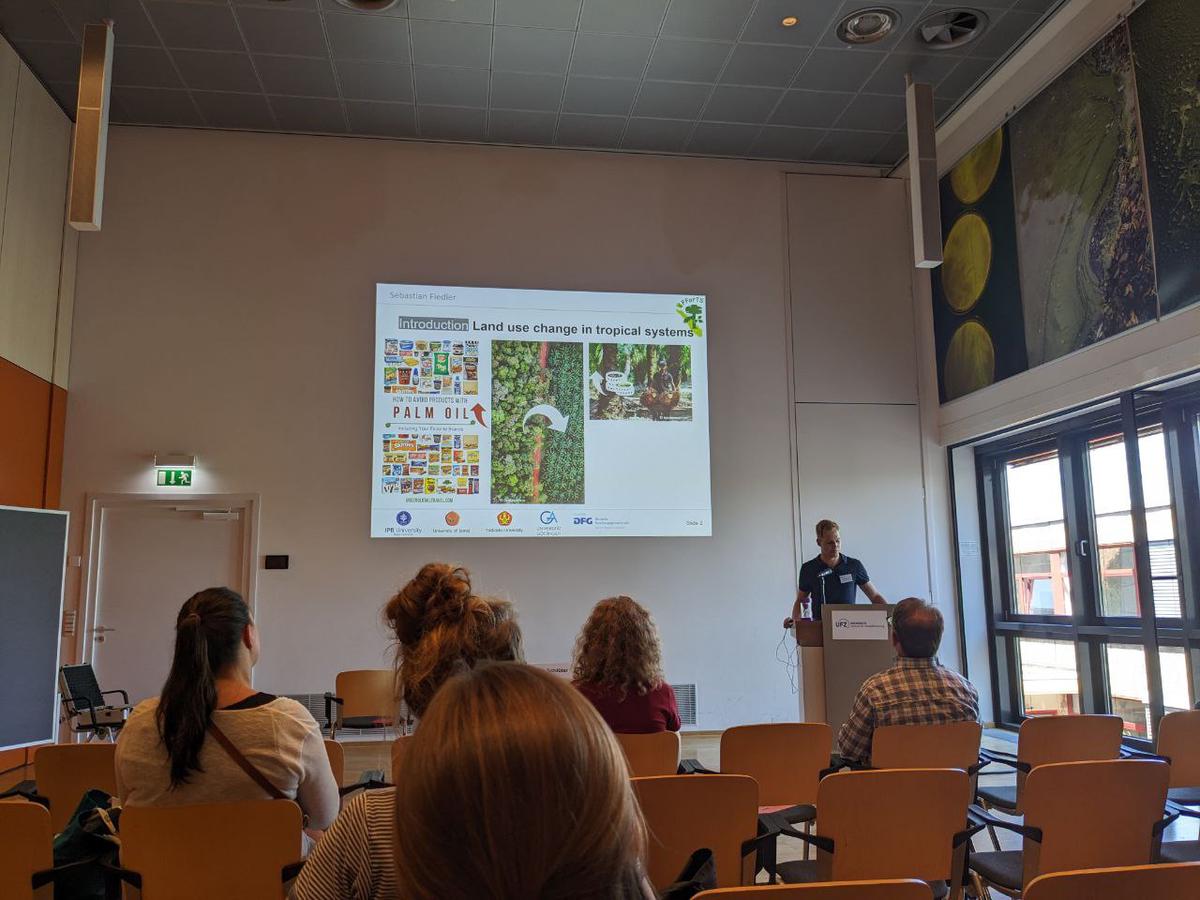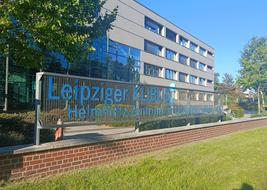Conference in Leipzig, Germany
European Conference on Ecological Modelling (4th to 8th Sep 2023)
 Me giving my presentation on landscape structure effects in the tropics
Me giving my presentation on landscape structure effects in the tropics
My inaugural experience at the European Conference on Ecological Modeling took place in the vivid city of Leipzig. The conference had the warm and welcoming atmosphere of a family gathering, where I had the pleasure of reconnecting with ecological modelers from various research groups across Germany and beyond. Many of these familiar faces were individuals I had crossed paths with previous academic positions or encounters at other ecological conferences. During this conference, I had the opportunity to share my research findings, which delved into the impacts of tropical landscape structure on ecological and socio-economic functions across various spatial and temporal scales.
This is the abstract to my talk:
Land use changes have dramatically transformed many tropical landscapes from forest to agriculturally dominated landscapes. Agricultural land uses, such as rubber and oil palm plantations, increase the socio-economic benefit at the cost of reduced ecological functioning, so called trade-offs. Questions arise on how different landscape designs in terms of fragmentation and connectivity of land cover types as well as different dynamic market prices for rubber and palm oil affect these trade-offs at different spatial (farm- vs landscape-level) and temporal scales (short- vs long-term). To tackle these knowledge gaps, we developed the integrated ecological-economic land-use change model EFForTS-ABM that follows a combined agent- and grid-based approach. The model simulates the impact of land use change decisions made by smallholder farmers on the economic outcomes from oil palm and rubber plantations as well as ecological functions such as carbon sequestration. EFForTS-ABM is based on socio-economic and ecological field data from the Jambi province in Sumatra (Indonesia). Using EFForTS-ABM we ran model scenarios on different landscape designs (i.e., different landscape fragmentations) and different dynamic crop price scenarios (i.e., constant vs different fluctuations of prices for rubber and palm oil). We then assessed farm-level and landscape-level ecological and socio-economic functions as well as trade-offs among them over the simulation time. Here, we will demonstrate the challenges in developing EFForTS-ABM and the usefulness of the model to assess the effect of different landscape design and price scenarios on socio-economic and ecological functions as well as trade-offs among them. We expect individual ecological functions to be affected differently by changes in landscape fragmentation, leading to different trade-offs with socio-economic functions. In addition, trade-offs among functions found at the farm-level might be less severe at the landscape-level. Temporal changes of land use and plantation ages driven by crop prices might change trade-offs over time. The results will be an important basis for identifying landscape designs that minimize losses in ecological functions while still allowing for economic benefits.

